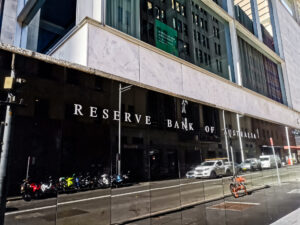The latest figures show governments can (and should) reduce inflation
Electricity rebates have demonstrated that leaving the fight against inflation should not be just left to the Reserve Bank
The drop in Australia’s inflation has been quite sharp. The latest monthly Consumer Price Index (CPI) figures from the Bureau of Statistics show that prices over the year to October rose just 2.1%. That is such a relatively small increase that so far form being worried about the 3% ceiling of the Reserve Banks inflation target, we’re now near the 2% bottom. Five months ago the CPI was at 4% and economists were speculating that the RBA might increase rates again.
The big reasons for the decline in price growth are that inflation across the world has slowed – and Australia is very much part of the world economy – and because the government sought to reduce prices by introducing an electricity rebate.
The drop in electricity prices has been dramatic.
In October the amount of electricity that in June last year would now have cost $100 now just cost $69.83. And while that is significant enough, had there not been the Commonwealth government rebate and the other state rebates in WA, Tasmania and Queensland, the average cost of that $100 worth of electricity would be $116.
In essence, the actions of state and federal governments have knocked 40% off the average cost of electricity bills across the county.
That is no small thing.
It serves to remind everyone that governments do actually have a vital role to play in combatting inflation.
Higher interest rates reduce the amount of income households have to spend and thus slow the economy and reduce demand. But in a situation like we currently find ourselves, where households are already spending less than they normally would and company profits and supply-side issues have mostly driven price rises, higher interest rates only slow the economy while having little impact on inflation.
When people are affected by higher prices due to things outside their control and also at a time when their wages are failing to keep pace, the right thing is for governments to act to ease the burden.
The government’s decision to implement the electricity rebate was a sensible economic policy that has directly helped people, and also achieved its aim of reducing the overall level of inflation.
It is just another reason why the RBA should cut rates next month. Inflation should not be left to the RBA, and at the moment, the high interest rates is only hurting people and doing little actual benefit.
Between the Lines Newsletter
The biggest stories and the best analysis from the team at the Australia Institute, delivered to your inbox every fortnight.
You might also like
When targeting inflation, the RBA misses more often than it hits
With the fight against high inflation now over, will the Reserve Bank fail to learn the lessons of the past and allow inflation to fall below 2%?
Fearful and frozen: Why the Reserve Bank continues to err on rates
The RBA’s failures have real consequences. It should go back and closely reread the recommendations of the RBA review, particularly the ones that encourage it to open up to new and diverse viewpoints.
If business groups had their way, workers on the minimum wage would now be $160 a week worse off
Had the Fair Work Commission taken the advice of business groups, Australia lowest paid would now earn $160 less a week.


